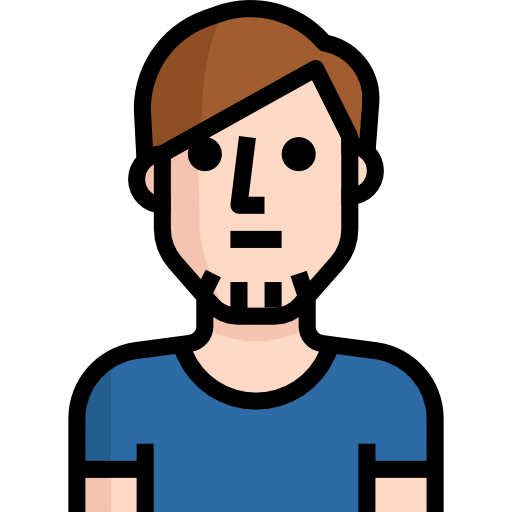With connection, we can conquer
Here at Reach 10, we focus on connection because we know that reaching out to 10 people can snowball into a network of supportive and healthy relationships. By educating ourselves and being simple good influences in the lives of those who struggle with pornography, we can help our friends and family through positive interactions.
Pornography’s dark secret
But pornography is sneaky and isolating. It can build walls around us, separating us from real-life connections and relationships. At our last meeting, Vauna Davis, founder of Reach 10, talked about an Instagram post her daughter recently made. She posted a group photo from her bridal shower, and thanked her friends and family for all their support, saying she was grateful for her “tribe.”
Vauna elaborated, “We all need a tribe that we feel safe and comfortable with and can learn from. We’re designed to be social beings, but porn gets in the way of that connection and isolates us.”
What keeps us from making connections?
Pornography traps us in a lonely world. When we feel alone, there are many limiting beliefs that keep us from connecting with others, such as:
- When I view pornography, I’m afraid to tell someone because I fear they will reject me and react negatively.
- Admitting problems shows that I am a failure.
- I find it easier to find temporary relief from problems through viewing pornography than talking to someone about it. Also, I’m not sure talking about it will actually help me.
- I’m already missing out on connection and feel depressed. Connection would help me overcome negative feelings about myself and my life, but I’m stuck in a spiral of depression and negativity and I can’t escape.
- I feel like no one cares, so who would even listen to me?
- I don’t have to be accountable if I don’t tell anybody that I have a problem.
- I don’t want to admit that I’ve made mistakes.
- I’ve learned to use people and get them to do things for me, so I’ve messed up relationships of trust. I am missing out on feeling real love and positive feelings toward others but I don’t know how to rebuild those relationships.
There are so many reasons that prevent us from reaching out. At our last Reach 10 meeting, we asked members how to increase connection amidst very real walls of loneliness and shame. We discussed the importance of connecting, different ways to communicate, and how to open relationships amidst hardship. Seeking help is difficult, but it’s the first step on the road to finding peace. Let’s discuss a few of these concerns and hear regular people’s thoughts regarding connection.

Limiting Belief #1: “When I struggle with pornography, I’m afraid to tell someone because I fear they will reject me and react negatively.”
It’s common to think that someone we love will react negatively (i.e., in anger or disappointment) if we reveal a pornography habit. There may be some misunderstandings, but talking about a problem is the first step for reaching out and creating a more honest and positive relationship. Those that truly want what’s best for us will be grateful for the truth.
And actually, it’s ok if someone does get upset at first. Because we are human, and we do have feelings. Give them a chance to sort out their feelings, and realize their reaction is based on their own background and beliefs. Learning to be more shame-resilient can help us not take someone else’s negative reaction so personally.
Related: Recognizing the Red Flags of Shame – How Do You Feel?
Angela talked about a personal experience finding relief through communication, even when it’s initially hard to speak. She recently joined an Addiction Recovery Program made up of people she doesn’t know well. “I was expecting it to be really hard to talk openly. But it’s been easier than I thought. Being with other people, there’s an expectation from the group that I will show up and I will make certain efforts.” Even though Andrea didn’t know her fellow group members before she joined, she feels support and relief. For her, it’s been a good experience to connect with others who understand.
Cassy also mentioned that there is comfort in feeling understood. “Most therapists will recommend that you go to a group setting. I think that realizing that you’re not the only one and that you’re not alone in your struggles can be a game-changer for so many people. When you break down your walls and are willing to be vulnerable, you see that there are people out there just like you. It automatically builds connection.”
Angela added that positive reactions from the supporter/listener also make it easier to open up:
“The other day in my group I made a comment that seemed pretty disconnected and not related to the conversation, but after the meeting someone came up to me and said, ‘Thanks for what you said, that really meant a lot to me.’ ”
We don’t know the impact we can have, and it’s encouraging that there are more people who understand. There’s a real sense of community.
Another aspect of mutual understanding and honesty is knowing that no one is perfect. We all have things to work on! It’s not about saying, “You have a pornography problem, but I’m perfect.” That is definitely not true! Everyone has their own struggles, but when we connect and support each other, we understand that we’re all working together for the same goal of connection and open communication. For instance, I may have a pornography problem, but you might have a problem controlling your anger. When we are honest and disclose those issues to each other, then we can work on our problems together. It’s about how we can help each other grow.

Limiting Belief #2: “I find it easier to find temporary relief from problems through pornography. It’s harder to talk to someone about issues, and I’m not sure it will actually help me if I open up.”
Talking to someone about issues is extremely difficult. It may be easier to give in to an unhealthy urges than to try to connect with someone else. But you’ll never be able to overcome your issues without people behind you. Sam discussed the mentality some have about pornography: “They’re looking to have some need fulfilled by their addiction. The longer they’ve been going, the more numb they become to other solutions because their brain is hard-wired to seek the easy way out. It’s harder for them to find friends and meet their needs. They find this easy source [pornography], but then they lose the connections they had at the beginning.”
When someone turns to pornography to meet their needs, pornography becomes the “medicine” – a way to escape for a moment, but not effective in the long run. There is a much more effective “medicine,” though. We can find healing (and a support system) through friendship and connection.
Related: Two Sides of Compassionate Conversations About Pornography Problems
Holly spoke from personal experience: “I’ve seen it in my own relationships. Even though overcoming pornography and addiction are personal issues for people, a recovering person still needs support from lots of people. Like with a hard project at school or work, you need other people to help you.” She suggests supporting your friend by simply being a positive influence and being present in their life, no matter what.
Kelly likened this support to troops fighting a battle: “If you’re by yourself, you’re just one person fighting porn and self-deprecating thoughts, and it’s impossible. You’re outnumbered! But if you have your army behind you, every person you talk to builds your army. You have an army of connections and people that have your back, and that’s so reassuring.”
When you open up and connect with someone, it’s not just temporary relief: you start a long-term solution to a damaging behavior.

Limiting Belief #3: “Admitting problems shows that I am a failure.”
Holly talked about how human nature and the drive to succeed affects the ways we deal with pornography-related setbacks. “We have this huge fear of failure and we don’t want others to think that we’re not successful. But we know that porn is wrong, and when we view it, we feel like we’ve failed.” To overcome these guilty feelings, some people put on a mask to project the good things they’re doing and hide negative behaviors. But covering up a “double life” is dishonest and hurts relationships in the long run.
Lana talked about how when you admit to your partner, family, or friends that you have a pornography problem, you’re not admitting you’re a failure—you’re admitting you’re a human being. When you reach out, you can find accountability (within boundaries) with someone and get help.
Yes, it’s hard to admit our mistakes. But if we make connections with others, we find success in other ways. Holly said, “If we can connect with others, we create a successful relationship, and that brings happiness to our lives. That’s something we can succeed in.” When we reach out for connection with someone else, we show our commitment to change and create success by doing a difficult thing. Additionally, improving in healthy hobbies and reminding yourself of your own worth is another way to feel successful and to overcome negative self-thoughts.

Limiting Belief #4: “I feel like no one cares, so why does it matter if I tell someone about what’s going on?”
Pornography is isolating. No matter how you feel, though, seeking out honest relationships with people you trust can help you see that despite what you may think, you are loved and needed. People are out there that want you to be successful and happy. Please don’t give up.
Can there be too much connection?
Cassandra mentioned that even though she understands the importance of connection, connecting all the time can be too much at times. That’s normal! It can take a lot of energy to connect with other people, no matter your circumstances. Almost half of the world’s population is “introverted,” or get more energized from personal time instead of time spent with lots of people. It can be hard to motivate yourself to go out and connect with others.
Having alone time is refreshing, but the most important thing is to find balance between healthy personal time and isolating yourself.
Cassandra said, “The word “escape” comes to mind. If I’m ‘recharging’ by escaping through Netflix or Social media or shutting myself in my room and not seeing people, I’m not really ‘recharging.’ I’m just avoiding interaction.”
Recognizing when are escaping versus when we are seeking peace and renewal is important. When you just can’t bring yourself to connect with someone else, you can instead use that time to learn more about yourself.
Here are some ideas from other young adults about how to find connection with yourself.
Rachel said, “I’m more introverted, and sometimes I have to force myself to make connections with others. When I’m not feeling it, but I know I’m feeling isolated, I can feel more connected with myself by just getting out of the house. I don’t have to have extended interaction with another person, but just seeing other people reminds me to connect.”
Sam said, “I deal with that too. A lot of it for me is getting into self-connection. Instead of watching Netflix or something, I’ve been trying to write more poetry and that’s really helped me get to know myself better. And it helps me not rely on a crutch.” Being creative and getting into fun hobbies can be a positive way of connecting with yourself.
Another way you can get out of yourself in a less stressful way may be to spend time with someone you know well. Rachel said, “I also find I can connect better and feel better around people I know well … Rely on those people. When you can’t be with them, just get out in the world.” It can be easier to connect with good friends and trusted companions.
It takes effort to look outside yourself and understand why you’re doing what you’re doing. “It’s hard,” confirmed Cassy, “but it’s worth it when you do it.” When you step outside yourself, you realize that there are people who love you. They care about you and want you to be happy.
It can be hard to see the good things in yourself sometimes, but know that you’re worth it! And if you need help seeing why, ask a friend. You matter!
Connection is key
Stepping outside the negative labels, understanding yourself, and connecting with other people isn’t the end-all in finding recovery from pornography dependency, but it’s the first step. Before you can address any other issues, letting go of the guilt and sharing how you feel with someone else can go a long way in helping you find peace and positivity through connection. When you are able to talk about what you’re going through, you can find help and strength from the people around. Be present in your own life and connect!









2 comments
I have I tried many times to stop, but I end up back where I started. I could us some help. I’m to afraid to tell my friends and family. I hope maybe it will be easier with you.
Have you seen the Fortify program from our friends at Fight the New Drug? Check it out, you may find help there! https://www.joinfortify.com/